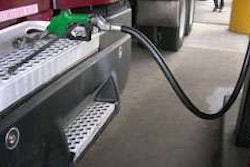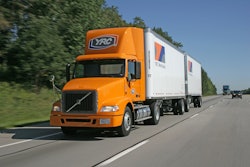Chesapeake Energy Corp. this week announced its plan for investments to capitalize on U.S. supplies of natural gas and oil from deep shale and other formations. Central to this private-sector initiative to stimulate technological innovation and stronger economic growth is the creation of a $1 billion venture capital fund, Chesapeake NG Ventures Corp., dedicated to identifying and investing in companies and technologies that will replace the use of gasoline and diesel derived primarily from OPEC oil with domestic oil, NG and NG-to-liquids fuels.
To fund this effort, Chesapeake will redirect about 1-2 percent of its forecasted annual drilling budget away from efforts to increase NG supply toward projects that instead will stimulate increased NG demand. Over the next 10 years, the company anticipates committing at least $1.0 billion to CNGV initiatives.
“We have analyzed the U.S. transportation sector during the past four years to determine how to create the best pathway to move our country away from dependence on OPEC oil and the resulting yearly transfer of more than $400 billion of American wealth to foreign countries, many of them often unfriendly to U.S. interests,” says Aubrey McClendon, Chesapeake’s chief executive officer.
The company’s first two demand-enhancement investments in CNGV includes a $150 million investment in Clean Energy Fuels Corp., based in Seal Beach, Calif. The investment, designed to provide an alternative to diesel fuel for heavy-duty trucks, will be made in three equal $50 million tranches, the first of which has been made and the other two are planned for June 2012 and June 2013. Clean Energy will use Chesapeake’s $150 million investment to accelerate its buildout of LNG fueling infrastructure for heavy-duty trucks at truck stops across interstate highways in the United States, creating the foundation for what Chesapeake calls “America’s Natural Gas Highway System.”
“This investment alone is projected to help underwrite approximately 150 LNG truck fueling stations, increasing by more than tenfold the number of publicly accessible LNG fueling stations and providing a foundational grid for heavy-duty trucks to have ready access to cleaner and more affordable American natural gas fuel along major interstate highway corridors,” McClendon says. “As confidence grows in the buildout of a national grid of CNG and LNG fueling infrastructure, we are confident that OEMs of all vehicular classes will vastly increase their production of CNG and LNG vehicles.”
McClendon says both businesses and consumers will be able on a large scale to acquire NG vehicles and embrace a cleaner American fuel that costs about $1.50-$2.00 per gallon less than gasoline and diesel. “We believe that a coast-to-coast and border-to-border buildout of CNG and LNG fueling stations will require approximately $1.5-$2.0 billion to complete, and we believe that a combination of private sector interests will step up to provide this capital in the next few years,” he says. “The prospect of delivering a clean American-made diesel fuel alternative at a substantial cost savings will be a sufficient incentive for this capital to be invested.”
McClendon says the conversion of the heavy-duty truck market to NG also would provide significant environmental benefits. According to U.S. Environmental Protection Agency data, use of NG in heavy-duty transportation will cut emissions of carbon dioxide, sulfur dioxide, nitrogen oxide and particulates, “substantially reducing air pollution and improving public health,” he says.
Secondly, Chesapeake also has agreed to invest $155 million in a 50 percent ownership stake in Sundrop Fuels Inc., a privately held cellulosic biofuels company based in Louisville, Colo. McClendon the investment over the next two years will fund construction of the largest nonfood biomass-based “green gasoline” plant in the world, capable of annually producing more than 40 million gallons of ultraclean gasoline from NG and waste cellulosic material. He says the investment promises to accelerate the development of an affordable, stable, room-temperature NG-based fuel for immediate use in today’s automobiles, diesel engine vehicles and aircraft.
“The clean, abundant and affordable qualities of American shale natural gas are well documented,” McClendon says. “With Sundrop Fuels’ efficient synthesis gasification process, natural gas becomes the enabling technology for a safer, stronger and greener economy. Natural gas supplies the missing link – hydrogen – needed to turn our nation’s biomass waste stream into a bountiful flow of truly green biogasoline that can fuel our cars, trucks, aircraft and industry.”












